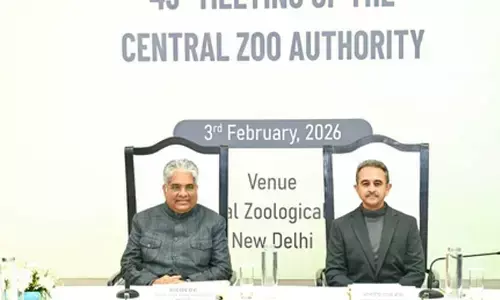Top-5 travel trends that will shape tourism industry in 2022

There is a pent-up demand for travel after the pandemic and more people are eager to embark on a journey
The latest Sabre survey results revealed several key travel trends that are truly game-changers in the industry. There is optimism in the industry as more countries ease their restrictions and more travellers are booking their first trip after years of being unable to do so.
Mandatory testing, vaccination passports and quarantine requirements continue to play a big part of travel in 2022. That said, this primarily applies to unvaccinated travellers. Day by day we're seeing more and more destinations reopening their borders and requirements around testing easing or being removed entirely. Indeed, destinations like Mexico and Slovenia have stripped away any previous restrictions related to Covid-19, for the vaccinated and unvaccinated. The USA is certainly one of our most popular destinations since reopening its borders late last year, while we're looking to New Zealand and Australia for long-haul getaways since it reopened to tourists this spring 2022.
These are the five key travel trends from the latest Sabre survey that the travel industry should watch out for and capitalise on.
Revenge travel
There is a pent-up demand for travel after the pandemic and more people are eager to embark on a journey. The uptick in travel is dubbed as "revenge travel," also known as consumers' knee-jerk reaction once restrictions have eased giving no mind to the price. There is an increasing demand in domestic travel followed by rising international travel.
According to a 2022 travel survey by American Express, 86 per cent of respondents expect to spend more or the same on travel in 2022 compared to a typical year before the pandemic. Similarly, the majority of airlines (69 per cent) and travel agents (66 per cent) Sabre survey respondents think people will spend more on travel in the future.
Travellers need experts
Due to the volatile travel restrictions, travellers are wary of going on a trip. Thus, they are eager to seek the help of travel agents. These uncertainties create opportunities for companies to offer services that are flexible as well as support in navigating the travel requirements.
81 per cent of the respondents said organised trips through tour operators/travel agents are becoming more popular. As the industry continues to recover, companies that can build trust with customers by providing valuable information and support in the decision-making process and beyond will benefit.
Demand for eco-friendly travel options
Probably brought about by the recent pandemic, travellers now lean towards more eco-friendly travel options. More consumers are asking for information on carbon emissions and how to offset them to make their trips more sustainable.
As the travel industry continues to recover, it is an important opportunity to prioritise the environment and transform the travel industry for the better. Sabre survey reveals that 87 per cent of consumers say sustainable travel is somewhat important or very important to them, and 77 per cent expect travel suppliers to provide more sustainable offers. The majority of travel agents (63 per cent) and airlines (54 per cent) expect people to travel more sustainably in the coming years.
Travel is the new office culture
Business travel takes a new form post-Covid. Corporate travellers are eager to reconnect with colleagues. A survey by SAP Concur showed that 96 per cent of the 3,850 corporate travellers in 25 global markets that they questioned are now excited to travel for work, with 80 per cent worried that unless they increase the amount of business travel, their professional lives will suffer. Bleisure travel is also on the rise blurring the lines between business and leisure travel. However, adaptive policies, processes and technologies are needed in order to nurture this travel trend.
Technology and collaboration
There is no denying that the post-Covid world demands fast adaptability. Technology and collaboration will be the new drivers in the travel industry. Travel companies must invest in technologies that remove roadblocks and bottlenecks in the booking process to provide an optimised service experience through automation.
Travel agencies are focused primarily on investments in web/online technology, PoS technology and CRM systems while airlines are focused on investing in capabilities such as self-service, touchless travel, biometrics and artificial intelligence. According to the latest Sabre survey results, many airlines are focused on investments around the New Distribution Capability (NDC) standard, as they expect this to help them deliver dynamic and personalized content (41 per cent), as well as increased revenue (36 per cent), particularly from premium and ancillary sales. Both parties recognize cross-industry collaboration as important in managing the rapidly evolving environment.









